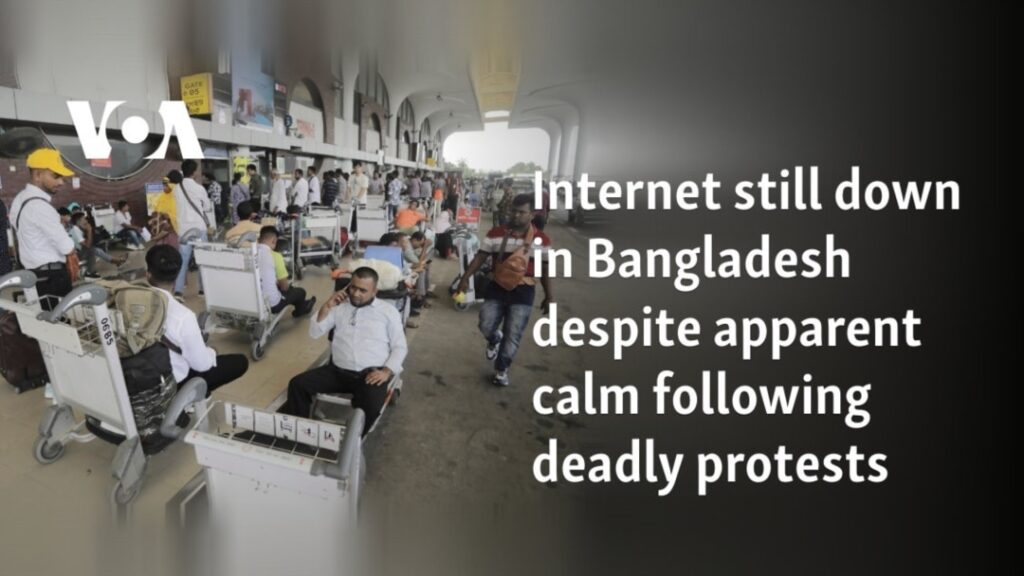In recent weeks, Bangladesh has witnessed significant social unrest stemming from the quota protest, a movement that has sparked widespread debates about job reservations in the public sector. While the protests have raised important questions about equity and opportunity, they have also led to a troubling consequence: ongoing network issues that have affected millions of people across the country. In this blog, we will explore the implications of these network disruptions, their impact on daily life, and the broader context of digital rights in Bangladesh.
The Quota Protests: A Brief Overview
The quota system in Bangladesh has long been a contentious issue, designed to provide opportunities for underprivileged groups in government jobs. However, many argue that the system has been abused, leading to calls for its reform or complete abolition. The protests, primarily led by students and youth groups, gained momentum, drawing attention to the perceived injustices in the current system. While the protests aimed to bring about positive change, they also led to heightened tensions between demonstrators and authorities.
The Network Blackout
In response to the protests, the government implemented various measures to control the situation, including internet disruptions. Reports indicate that mobile internet services were throttled, and social media platforms were temporarily blocked. These actions aimed to curb the spread of misinformation and reduce the mobilization capabilities of protestors. However, the unintended consequence has been a widespread network issue that has continued even after the protests have subsided.
Users across the country have faced intermittent connectivity, slow internet speeds, and restricted access to essential online services. For a nation that has made significant strides in digital innovation and connectivity, this regression poses serious challenges.

Impact on Daily Life
The ongoing network issues have far-reaching consequences for various sectors and individuals in Bangladesh:
- Education: With the rise of online learning, students have become increasingly reliant on a stable internet connection. The disruptions have hindered access to educational resources, leading to concerns about academic performance and opportunities for remote learning.
- Business Operations: Many businesses, particularly small and medium enterprises (SMEs), depend on reliable internet for their operations. The network issues have disrupted communication, online transactions, and access to global markets, threatening the livelihoods of countless entrepreneurs.
- Social Connectivity: In a digital age where social media platforms serve as primary communication channels, the inability to access these services has isolated individuals from their communities, especially during a time of social upheaval.
- Healthcare Access: Telemedicine and online health services have become vital during the pandemic. The network disruptions have made it difficult for people to access medical advice and services, potentially endangering lives.
The Broader Context of Digital Rights
The ongoing network issues in Bangladesh highlight a critical conversation about digital rights and freedom of expression. As the government navigates the delicate balance between maintaining order and ensuring citizens’ rights, it must consider the implications of internet blackouts and restrictions.
Access to information and communication is a fundamental right in the modern world, and restrictions can lead to a culture of fear and suppression. Digital rights activists argue that the government should prioritize open communication channels, especially during times of unrest, to foster dialogue and understanding.
Moving Forward: The Need for Dialogue and Reform
As the situation evolves, it is crucial for the government, civil society, and citizens to engage in constructive dialogue about the future of the quota system and the associated network issues. Transparent communication and a commitment to digital rights can pave the way for a more inclusive and equitable society.
In conclusion, the ongoing network issues in Bangladesh following the quota protests serve as a reminder of the delicate interplay between governance, civil rights, and technological progress. As the nation works to address these challenges, it is essential to prioritize the voices of the people and facilitate an environment where dialogue can thrive in both the physical and digital realms.
In the age of information, connectivity is not just a privilege; it is a right that must be protected and preserved for all.
